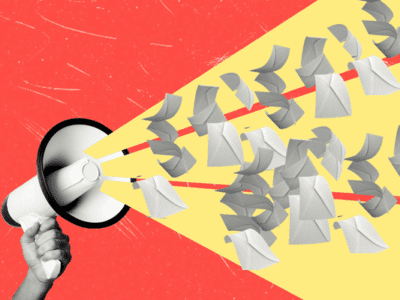The Third Political Branch
Time for Term Limits?
In 2021, Supreme Court Justice Amy Coney Barrett famously said, “my goal today is to convince you that [the Supreme] Court is not comprised of a bunch of partisan hacks.” Justice Barrett is correct. The Justices are not hacks, but rather polished political actors. Let’s review:
-
- In West Virginia v. EPA, 142 S. Ct. 2587 (2022), the Court created the Major Questions Doctrine, precluding federal agencies from resolving questions of “vast economic and political significance” without clear statutory authorization. Who decides if the matter involves vast economic and political significance? The Court.
- Stare decisis and precedent have receded, providing the Supreme Court majority with greater power to change the law. Take your pick – Dobbs and Friday’s rejection of the Chevron doctrine, come immediately to mind.
- Ethics rules do not apply to Supreme Court Justices (or, when they do, the Justices determine their application). By way of comparison, even junior employees of the state of California cannot accept gifts of over $590 (aggregate) in a calendar year – not really enough to fund a trip to a Bali resort with billionaires.
- By granting review of Trump’s blanket immunity claim and leaving its decision until July, regardless of the decision, the Court majority has likely precluded pre-election prosecution.
- The Court’s growing use of the shadow docket for substantive matters has increased its power over the judicial system and agency action.
- Last week, in overturning Chevron, the Court majority determined that federal agencies no longer receive deference in interpreting statutes that they are directed to implement. Who now makes the interpretation? The Court. That makes perfect sense, of course, given the Court’s deep expertise in issues of technology, climate science, aviation, drugs, social media, and any of the thousands of issues that agency regulations touch upon, following extensive and often nuanced consideration of massive public records.
The Supreme Court majority has carefully and repeatedly increased its own power as it diminishes that of the Executive Branch (and to a lesser extent, Congress as well). It has now weighed into presidential politics, rejected meaningful ethical guidelines, and made itself the sole arbiter of statutory intent regardless of the issue or technical knowledge needed. These are savvy political actions effectively shifting the balance of power.
It is time to have a much more serious consideration of term limits for Supreme Court Justices.
Reader Comments
3 Replies to “The Third Political Branch”
Comments are closed.







1 July 2024
Our economy, industry, technology, academics, etc., etc., etc., are ALL-L-L-L evolving FAR-FAR-FAR faster than the singular or collective acumens of these S.C. justices. Secondly, S-O-O-O-O many people want our country to be managed like a business. Ok. Tell me, what companies retain the same board member for decades-upon-decades…FOR LIFE?? Yet, we retain these OVERLY POLITICIZED S.C. justices FOR LIFE!!! We also keep these power addicted, career politician$$, incumbent$$ politicians in such POWERFUL positions until they can’t even walk (much less singularly hoist themselves off the commode!!!)
We need to WAKE UP – AND FAST – and enact mandatory retirement for ALL-L-L-L state & federal representatives & senators at 68, and, for ALL-L-L-L-L-L federal judges at 68 OR after 20 years on the S.Court…S.C. justices ESPECIALLY!!!!!
POWERFUL, OVER-PAID, OVER-PERKED, INSULATED, NON-TRANSPARENT government employees FOR LIFE??? IT’S INSANE!!!!
INSANe! infuriating!
Since SCOTUS granted the president total immunity from criminal prosecution for any alleged criminal act that involved an official act, Biden should take them up on it to check the rogue court itself.
SCOTUS is issuing far-reaching and patently unreasonable rulings with no redress possible.
Why can’t Biden order the Justice Department to subpoena the justices to appear at a hearing and explain their activity on the shadow docket, for example? Or more cogently, how their constructive grant of absolute immunity to the President to behave criminally is consistent with the Constitution and the Presidential oath of office? How can it be okay for the President to accept a bribe from a foreign power to issue an executive order? It’s absurd.
The justices would in all likelihood refuse such a subpoena. They’d claim the precedent of Marbury v Madison gave them the last word. (They’re very self-serving about which precedents they honor.)
Setting aside the recursive, self-referential conundrum of Marbury, in which the Court itself granted itself this last-word power, Marbury doesn’t grant the Court the right to turn the Constitution on its head.
The Constitution explicitly links membership in the Court to “good behavior” (Article III). How is taking bribes (Thomas) good behavior? Or flying insurrectionist flags (Alito)? How is turning the Constitution on its head by giving the President effective power to supersede it at will good behavior?
Here’s where the immunity ruling could be used by Biden, while he’s still President, to challenge and perhaps reverse that ruling. When they refuse the subpoena, he should issue an executive order to have the justices physically brought to the hearing by US marshals. When the justices cry foul, Biden just waves their own ruling in their face.
Is this an attack of one branch upon the other? No, the immunity decision was the instigating attack on the Legislative branch by giving the President the ability to nullify any law at will. More importantly, the SCOTUS decision granting the President immunity was an attack on the Constitution itself. The hearing would be a defense against the Court’s attacks.
It would take a lot of energy and conviction to do this–to not fall into the equivalent of the NFL personal-foul trap whereby the guy who slaps back at the guy who slapped him gets the yellow flag.
But the recursive illogic of this decision should not go unchallenged. It’s either challenge it now, or risk Trump getting elected and using the ruling to accept bribes from Putin and MBS to sell out the country, and/or to arrest his political rivals (or worse).